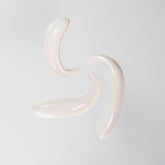10 Frequently Asked Questions About Sex and Intimacy
What are 10 frequently asked questions about sex and intimacy?
The year 2020 will stay in our memories for a number of reasons, of course the Covid pandemic immediately comes to mind has it modified the way we used to do a lot of things, whether in our professional, personal or intimate life. We also saw a rise in the way people dived into self-care as well as sexual wellness. So, we wanted to do a round up of 10 frequently asked questions about sex and intimacy.
👪 How to integrate intimacy in a relationship when you have kids?
This question comes as no surprise especially considering the amount of time we had to spend at home in 2020 and we actually dedicated a whole blog post about Confinement and relationships!
Intimacy can be a challenge for parents with or without confinement, so here are some things to try. Obviously, you want to choose a moment when your kids don’t need you (nap time or after bedtime) to make time for your couple. When your kids are busy playing, wouldn’t it be a good opportunity to relax with your partner, talk about the news, kiss or touch each other subtly? I’m sure, household tasks and chores can wait for a couple of more minutes!
➡️ You can also try to prioritize pleasure and simplicity. Lower your expectations and try to think outside the box, sexuality will come as a bonus to enhance everyday life. If you have to schedule a moment with your partner, why not? There is no shame in making the time for intimacy and pleasure. A good practice could be to schedule a date night every 2 weeks - which can or cannot involve sex.
😳 Should I have sex on a first date?
This is a question that’s been on the mind of people for a long time now and I do hope the mentalities in our somewhat more sex positive era have changed. Setting aside any Covid safety issues, I think the answer would actually be a couple of questions to ask yourself: do you feel safe with your date? Do you trust this person? Are you feeling a connection? Do you want to? Are you feeling pressured into it? Is it a step you want to take or do you need more time?
Basically, if you want to, why not? Trust your gut! If this person is ‘’meant’’ to be with you, if you are suppose to date and connect on the long term, I believe having sex shouldn’t affect that. Because if it does, then maybe that person wasn’t meant to be with you. Last point, remember that consent to have sex (or be intimate) is always reversible, freely given, informed, enthusiastic and specific!
🕵️ Where is the g-spot?
For a long time the question actually was: is the g-spot a real thing? Thank goodness, we are past that question (or at least the Desirables Team is, even if the scientific community can’t always seem to agree...), which brings us to our current one: where is the g-spot? It is only recently (2009) that scientists realized this spot is actually an internal portion of the clitoris. This extremely sensitive erogenous part in the female anatomy can help reach orgasm faster.
➡️ The G-spot is difficult to find for three main reasons: it is not located at the same height for everyone, varies in size and is easier to identify when engorged with blood (when you’re excited). We recommend that you try with tactile exploration first because you can identify it by its rough and bumpy texture. Some people describe it as a “nut” on the vagina’s walls. You can then try to stimulate it with your favorite dildo. To reach the G-spot area you can aim at the navel. Some researchers compare this area to a clock and would locate it between the eleventh and the first hour.

🙋 Am I normal if I never had an orgasm?
Yes! In her (amazing) book Come as You Are, Emily Nagoski talks about orgasms in great depth and indicates that ‘’around 16% of women have not had an orgasm, or are unsure whether they’ve had one by age 28’’. For some people it is easy to reach, for others not so much, but it does not mean that you are abnormal if you’ve never had one. Plus, the clitoris plays a huge part into womxn’s orgasm. If you’ve never had an orgasm through vaginal intercourse, it is quite possible that the reason is simply because not the right body part was stimulated.

➡️ There are also various factors that can come into play when it comes to lack of orgasm: stress, frustration, hormones, certain types of medication, stimulation, anxiety, etc.
Plus, orgams are represented as such an important part of sex that some people get performance anxiety, which in turn renders them unable to reach orgasm. Make sure to read our blog post about this subject if you think it is your case. Otherwise, perhaps you are not using the right kind of stimulation? Did you know that approximately 36% of people with vagina reported that it is easier for them to reach orgasm through clitoral stimulation! Remember, having an orgasm is a nice bonus, but we believe pleasure should matter most when it comes to sex.
Also, some womxn may experience orgasms that are less intense and don’t recognize their experience as such because the orgasmic experience is often represented in the media like an “Earth shattering moment”.
➡️ Make sure to read our blog post about Masturbation 101 - it might give you new ideas to try out.
🍆 Will I ruin my relationship if I use a sex toy?
No, using a sextoy shouldn’t ruin your relationship, we even believe it will enhance it! Because it will open your world to new sensations and pleasures and perhaps even deepen your bond, communication skills or intimacy. Of course, if you have never used sextoys with your partner before, communication will be key! Especially in heterosexual relationships where one of the partner can sometimes perceive sex toys as a sign that they are not ‘’enough’’. If you need help to choose a toy, make sure to read our Guide on How to Choose a Sex Toy!
💡 Here are a couple of introductory phrases you could try:
- I saw this toy on Instagram, would you be interested in trying it with me?
- I would like to try X type of sensations, how do you feel about using a toy?
- There is a toy that is made for couples, I was wondering if you were willing to try it?
- If you are watching something together and someone is using/talking about a sex toy, point it out to see the reaction of your partner

📉 Why do I have a low libido?
To be honest, there are a myriad of reasons that could answer this question! I also want to point out that there is no ‘’normal’’ frequency to have sex, the statistics we read online, in magazines, etc. should be taken with a grain of salt, because they usually come with no context at all. Plus, not everyone has the same level of sexual desire and this can vary from day to day, so communication with your partner, or honesty with yourself, is always an important part!
So short answer, here are some reasons why you might have a low libido: stress, unexpressed feelings/anger/frustrations, not feeling sexy or desirable enough, low self-esteem, hormonal changes, feeling too tired or if sex is literally painful.
If you want to go deeper and read more on what to do, we have a complete blog post on the subject.
➡️ Why do I have a low libido?
😰 Should I be worried if my partner likes adult movies?
It actually depends on various things, but let’s be clear: it is normal to watch porn and most people do it. What varies is the kind of porn that is watched, the frequency and the impact it has (or not) on your ‘’real’’ life. Most people will watch porn to fulfill a personal desire/urge, not because something is missing in their relationship. And if you feel like you are off-put by porn, try to find ethical porn. Most ‘’mainstream porn’’ is designed and created with heterosexual men in mind whereas ethical porn will often have a female perspective/view.
➡️ But, if the fact that your partner watches porn affects your self-esteem or upsets you, then perhaps you should sit down with the person and communicate openly and without judgment about what you are feeling. You should also ask yourself: why is it making you feel this way?
If you feel like this habit comes in the way of your own (sexual) relationship by making it not as attractive, intimate, not as exciting,etc. then maybe it is something you should look into with your partner and decide what to do about it.
Recently, there have been a lot of concerns concerning Porn addiction and it is a real addiction that should be taken seriously. But watching porn once in a while does not mean that your partner is addicted. The key with anything related to sexual practices is to make sure that there is a form of diversity.
If you want to dive deeper into the subject, certified sex educator Gigi Engle wrote a great article about the subject. Click here to read it!
💨 What is queefing?
Queefing is simply the release of air from the vagina, it is not a fart (although the noise might be similar) and it doesn’t have an odor. It will usually happen when something goes in and out the vagina, for example a penis, fingers or a sex toy, and causes an air bubble to form - stretching and practicing yoga can also cause this reaction!
You might feel embarrassed when this sounds occurs while you are having sex, but we suggest you either laugh it off or ignore it! There really isn’t much you can do about it anyway and if you are having fun and feeling pleasure, we believe that is what you should focus on.
🚽 Should I pee after sex?
This is a common question people have, especially people with vaginas. It is not necessery to pee after sex, but it is strongly recommended, especially if you are prone to urinary tract infections (UTIs).
The reason why it is more important to pee after sex when you have a vagina is because the urethra is close to the vagina and anus. So when you have sex, there is a higher chance that the bacterias in your anus gets move from one place to the other. The urethra in the female anatomy is also shorter compared to the male, so there’s a higher chance that these bacterias reach the bladder. That’s why it is said that peeing after sex will help you to flush out said bacterias. There is no hard proof or strong evidence that it prevents UTIs, but it is not a bad habit to have. Although if you don’t feel like peeing, do not force yourself either!
🥵 Is masturbation healthy?
Basically: yes! And let’s also throw ‘’normal’ into the mix. It is normal and healthy to masturbate at all ages regardless of gender or sexual orientation. There is also no specific amount of masturbation you should be doing. Some people do it everyday, others twice a week, once a month, etc. It only becomes problematic if masturbation gets in the way of your job, studies, relationships, and so forth.
➡️ Plus, there are many physical and mental health benefits to masturbation: it decreases stress and reduce chances of insomnia, it can ease the pain of menstrual cramps, it can increase the strength of your pelvic floor and it is safe to say that it’s the safest type of sex you can have!
Masturbation also has the benefit of allowing you to know yourself and to discover what gives you pleasure (what kind of pressure, movements, rapidity, position, etc.).Which in turns will make it easier for you to tell your partner what you like in bed and ensures you will have as much pleasure as you want.
➡️ Discover the benefits of female orgasm!
👉 Make sure to read Couple's Candy blog post if you want to know more about the Health Benefits of Sex!
Sources:
Book: Come as you are by Emily Ngoski
https://www.netdoctor.co.uk/healthy-living/sex-life/a28178918/pornography-relationships/
https://www.health.com/condition/sexual-health/what-is-a-queef
https://www.medicalnewstoday.com/articles/327380
https://www.mayoclinic.org/diseases-conditions/urinary-tract-infection/symptoms-causes/syc-20353447
https://www.plannedparenthood.org/learn/sex-pleasure-and-sexual-dysfunction/masturbation
https://kuscholarworks.ku.edu/handle/1808/4517?show=full







1 comment